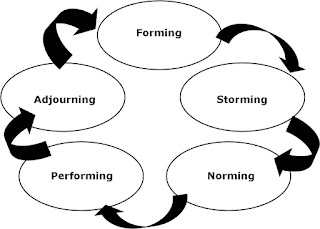Our Response to Change is Neurological
I've worked in many organisations that have been undergoing change and have often wondered what's going on inside of us that makes change seem so daunting. Well, now I know!
Monday, 11 July 2011
Tuesday, 19 April 2011
How I Remembered That Change Is Personal
Change is Personal
Last month I changed my car. Why am I telling you this? Well, as you know I specialise in behaviour change and have experienced a lot of change in organisations and seen and heard first hand how it can affect people.
So you’d think that I would know how people process change and what might happen as they transition through the process. Well, even with all my knowledge and experience it was only when I made the decision to change my car – a mazda RX8 - that I realised how emotionally attached I was. I know, emotional attachment to a car sounds bizarre.
What’s Important To Me?
It all started back in January this year when I was reminded of a technique to elicit clients’ values. I watched as the process was demonstrated on a willing volunteer. As they went through the process I started to think about what I value in a car – and more importantly why I value my car.
Last month I changed my car. Why am I telling you this? Well, as you know I specialise in behaviour change and have experienced a lot of change in organisations and seen and heard first hand how it can affect people.
So you’d think that I would know how people process change and what might happen as they transition through the process. Well, even with all my knowledge and experience it was only when I made the decision to change my car – a mazda RX8 - that I realised how emotionally attached I was. I know, emotional attachment to a car sounds bizarre.
What’s Important To Me?
It all started back in January this year when I was reminded of a technique to elicit clients’ values. I watched as the process was demonstrated on a willing volunteer. As they went through the process I started to think about what I value in a car – and more importantly why I value my car.
Tuesday, 15 March 2011
How Do You Behave In A Team?
Teams exist to get a task or tasks done – their sole purpose is achieving outcomes. This might seem straightforward enough but not all teams work together well.
The model above on team development and behaviour was developed by Dr Bruce Tuckman in 1965 to help understand what high performing teams need to do in order to achieve their outcome. Adjourning was added in c1975 and recognises that closure is needed to move from performing in one team to forming another team.
So let’s have a look at each stage in detail
Teams exist to get a task or tasks done – their sole purpose is achieving outcomes. This might seem straightforward enough but not all teams work together well.
The model above on team development and behaviour was developed by Dr Bruce Tuckman in 1965 to help understand what high performing teams need to do in order to achieve their outcome. Adjourning was added in c1975 and recognises that closure is needed to move from performing in one team to forming another team.
So let’s have a look at each stage in detail
Subscribe to:
Posts (Atom)

